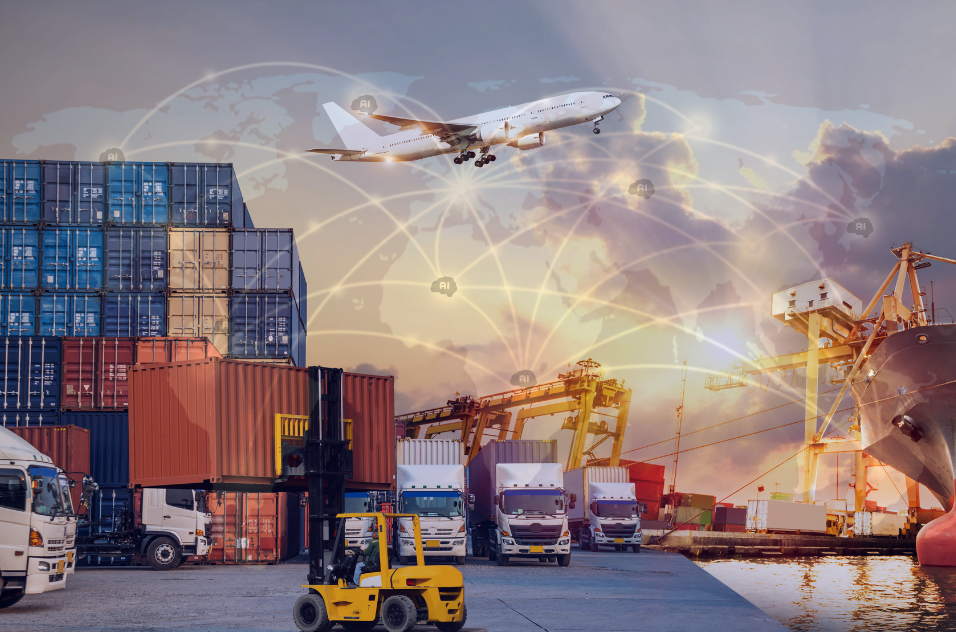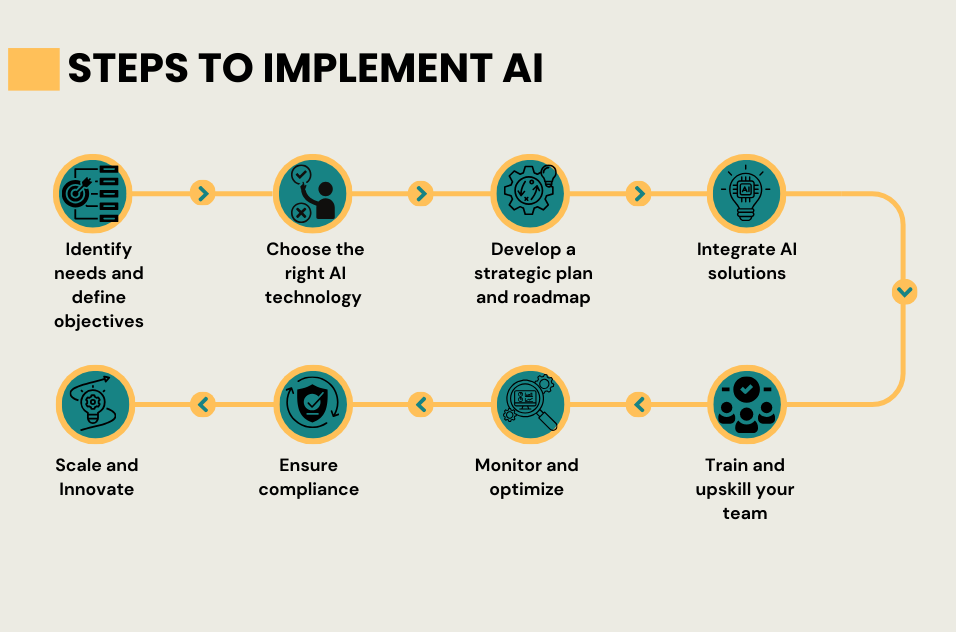
Artificial Intelligence (AI) is driving significant changes across multiple industries, with transportation and logistics experiencing some of the most notable changes. By partnering with an expert AI development company businesses can leverage its transformative benefits. In this blog, we will investigate how AI is influencing these sectors, covering its practical applications, benefits and future possibilities.
Artificial Intelligence (AI) is a field of technology designed to enable machines to perform tasks that mimic human thinking and decision-making.This simulation includes key processes like learning (gathering information and applying rules), reasoning (drawing conclusions through logical rules), and self-correction (modifying behaviors in response to new data).
The ability of AI to analyze vast amounts of data and make intelligent, real-time decisions is revolutionizing the transportation and logistics sectors. AI solutions developed by an AI development company enhances operational efficiency, service delivery and decreases costs, which are crucial for an industry that depends on precision and speed.
Related : Top AI and Machine Learning Trends : Insights for Businesses
Autonomous vehicles and drones, driven by AI technology, are reshaping the logistics field by delivering unmatched efficiency and reliability in transport. These autonomous solutions operate around the clock, reducing your dependence on human drivers and significantly speeding up delivery times.
Through the analysis of traffic flow, weather forecasts, and road restrictions, AI technologies refine route planning for delivery services. This results in enhanced delivery efficiency, lower fuel consumption, and reduced vehicle wear and tear. Additionally, AI-powered fleet management systems developed by an AI development company, offer real-time insights into vehicle performance, driver behavior, and maintenance needs, helping your business stay on top of operational efficiency.
AI-driven predictive analytics leverages historical data, market trends, and other pertinent factors to deliver more precise demand forecasts for your business. This enhanced accuracy aids in optimizing inventory management, streamlining routing processes, and lowering operational costs by proactively managing fluctuations in demand.
AI-powered robots and automation technologies are revolutionizing warehouse operations by handling tasks like sorting, packing, and inventory management. This advancement enhances accuracy and speeds up processing, reduces labor costs, and improves safety within your facility.
The use of AI chatbots and virtual assistants is transforming customer service by efficiently handling inquiries, providing instant updates, and swiftly resolving issues, leading to higher customer satisfaction and lessening the operational burden on your human staff.
Through artificial intelligence, real-time tracking and visibility throughout the supply chain are significantly enhanced. AI-driven tracking solutions enable businesses to monitor shipment locations and conditions, predict delays, and provide reliable delivery estimates, ensuring better management and customer satisfaction.
Related : Generative AI’s Role in the Future of Supply Chain

By automating routine activities, refining routes, and forecasting demand, AI solutions enhance your operational efficiency. These advancements contribute to faster processing, reduced costs, and increased overall efficiency, helping your business operate more effectively.
It improves the accuracy of inventory management, predicting demands and delivery scheduling. Thus minimizing human error and providing valuable data-driven insights, enabling businesses to make more accurate decisions and reduce the occurence of errors.
Through better resource management, decreased fuel consumption and lowered downtime, AI aids in cutting down the cost in your business operations. The efficiency improvements driven by artificial intelligence lead to significant cost savings over the long run.
The integration of autonomous vehicles and AI-driven safety systems enhance safety by reducing the likelihood of human error and delivering real-time alerts for potential risks. This improvement fosters a safer working environment and fewer accidents.
By offering accurate delivery updates, personalized recommendations, and responding swiftly to inquiries, AI-enhanced tools boost customer satisfaction. This streamlined experience helps build customer loyalty and also drives business expansion.
Related : What is AI augmented software development?

Begin by analyzing your current operational challenges, including routing inefficiencies, high costs, or inventory control issues. Then, establish specific goals for AI integration, such as improving delivery speed, lowering costs, or or improving supply chain insight.
Adopt artificial intelligence to enhance operations through predictive analytics for demand and route optimization, deploy autonomous vehicles and drones for efficient deliveries, employ AI robots for warehouse tasks, and deploy chatbots and tracking technologies to provide immediate updates and assist with customer support. Partner with an expert AI development company for developing custom AI solutions based on your business needs.
Create a structured roadmap with specific timelines and milestones for each phase of AI implementation, from deployment to full integration.Optimize resource allocation to cover training needs and infrastructure upgrades, ensuring an effective implementation of AI technology
Launch a pilot program to test AI solutions on a limited scale and confirm their compatibility with current systems. Gather and integrate information from multiple sources to ensure a complete understanding and validate its effectiveness prior to wider implementation.
Offer comprehensive training to employees on the effective use and management of AI technologies. Encourage adoption by showcasing the advantages of AI solutions and offer continuous assistance.
Track key performance indicators and collect user feedback to identify potential issues and determine areas for improvement.
Ensure that AI solutions adhere with data protection laws and deploy comprehensive cybersecurity measures to shield AI systems from potential vulnerabilities.
Incorporate AI solutions across various operational areas and integrate emerging innovations to retain a competitive edge.
Related : Generative AI Vs Predictive AI
Looking ahead, artificial intelligence is set to bring even more substantial transformative changes to transportation and logistics. Embracing the latest AI technologies can provide you with a significant competitive edge. At Zoondia, leading AI development company, we excel in developing customized AI solutions that meet the unique demands of your business, keeping you ahead of industry trends.
Get in touch with us today to explore how our AI innovations can elevate your business or to book a consultation!
Leave a Reply